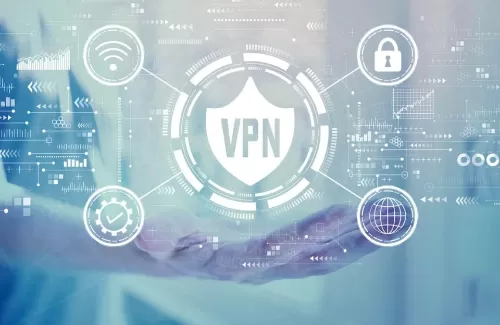How does VPN Works
A Virtual Private Network (VPN) is a service that allows users to connect to the internet securely and privately by routing their connection through a remote server.

This process masks the user's IP address, making their online actions virtually untraceable. VPNs are commonly used to enhance online privacy, secure internet connections, and access restricted content by bypassing geo-blocks.
How Does a VPN Work?
When you connect to a VPN, the service creates a secure tunnel between your device and the internet. This tunnel encrypts all data sent and received, preventing third parties like hackers, internet service providers (ISPs), or even government agencies from intercepting your information.
Here’s a step-by-step breakdown of how a VPN works:
Connection to a VPN Server: You start by connecting to a VPN server provided by the VPN service. This server could be located anywhere in the world.
IP Address Masking: Once connected, your IP address is replaced with the IP address of the VPN server. This makes it appear as if your internet traffic is coming from the server’s location rather than your actual location.
Data Encryption: The VPN encrypts your data using strong encryption protocols. This ensures that even if your data is intercepted, it cannot be read without the encryption key.
Secure Data Transmission: Your encrypted data is securely transmitted to its intended destination, whether it's a website, an online service, or another device on the internet.
Types of VPN
There are several types of VPNs, each with its own unique features and use cases:
Remote Access VPN:
Description: This type of VPN allows individual users to connect to a private network from a remote location. It’s commonly used by employees to access their company’s internal network securely.
Use Case: Ideal for remote workers who need to access corporate resources like emails, documents, or internal tools.
Site-to-Site VPN:
Description: A Site-to-Site VPN connects multiple networks together over the internet. It's often used by businesses with multiple offices in different locations to enable secure communication between them.
Use Case: Perfect for large enterprises that want to connect different branch offices to a central office network.
Mobile VPN:
Description: A Mobile VPN is designed for mobile devices that frequently change networks or are continuously on the move. It allows seamless switching between different networks without losing the VPN connection.
Use Case: Useful for individuals who rely heavily on mobile devices and need to maintain a secure connection while traveling or moving between different locations.
Client-to-Client VPN:
Description: This type of VPN connects two client devices directly. It’s less common and typically used for specific, direct, and secure communications between two devices.
Use Case: Often used for secure peer-to-peer communications or direct device connections.
Peer-to-Peer (P2P) VPN:
Description: P2P VPNs are designed specifically for file sharing and torrenting. They enable users to share files securely without exposing their IP addresses to other peers in the network.
Use Case: Ideal for users who frequently engage in peer-to-peer file sharing and want to ensure their privacy and security.
Benefits of Using a VPN
Enhanced Privacy: By masking your IP address, a VPN helps keep your online activities private.
Secure Data: Encryption protects your sensitive data from being intercepted or stolen.
Bypass Geo-Restrictions: VPNs allow you to access content that might be restricted based on your geographic location.
Safe Public Wi-Fi Usage: VPNs secure your connection on public Wi-Fi networks, protecting you from potential threats.
Conclusion
VPNs are essential tools for anyone looking to enhance their online security and privacy. By understanding how VPNs work and the different types available, you can choose the best option to meet your needs and ensure a safer internet experience.

Find the Perfect Wedding Photography Package for Your Big Day

The Complete Guide to Air Conditioning Repair: Stay Cool and Comfortable

5 Plumbing Safety Mistakes That Could Cost You Over a Grand

Your Complete Guide to Carpet Flooring: Maintenance, Lifespan, Installation Costs, And Warranty Coverage

The Evolving Role of Real Estate Agents in Todays Market

5 Steps for Effective Water Extraction: Protect Your Home from Water Damage

Why ADA Compliant Walk In Showers Are Essential For Senior Safety







